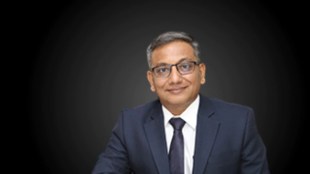Arvind Kejriwal’s confession that the mandate Aam Aadmi Party (AAP) received was scary is true in more ways than he may have had in mind. Shailaja Chandra in her article (goo.gl/V1wUAm, ‘To the CM-in-waiting’, The Indian Express) explained how the Delhi government lacks legal powers on a whole range of issues. And not just that, the police, public order and land are the direct responsibility of the Central government. Even a revision of municipal bye-laws to increase fines on littering requires the government of India’s approval. It is no wonder that the first demand Kejriwal raised with both home minister Rajnath Singh, and with Narendra Modi was statehood for Delhi, followed the need to have a constructive relationship with the government of India.
Constitutionally, Delhi is a Union Territory (UT) with a legislature, as Pondicherry has been for over five decades. Unlike UTs without legislature, where financial powers are limited since their budget is a part of the home ministry’s budget, Delhi has unlimited powers as long as it is generating its own resources. But unlike Delhi, the UTs without legislature have a single source of power, the lieutenant-governor (LG), who is the administrator. Delhi’s elected government, besides having no control over police, land, etc, can see its decisions over-ruled by the combination of the LG and home ministry.
Kejriwal’s demand for statehood seems unlikely to be realised. Successive Union governments have considered statehood but none has accepted the demand. When the Narasimha Rao government moved the bill for an elected Assembly in Delhi, it very consciously kept sensitive subjects like police and land under government of India, signalling the limitations of administrative autonomy that the nation’s capital could enjoy. Subsequent governments e.g., the NDA under Vajpayee considered it but the general unease amongst Union ministers about having to live and operate in a city where the police and municipal machinery was not under them was enough to abort the proposal. Even the idea to give Delhi statehood and delink the NDMC area from it so that it could remain a UT did not find favour. There was also the apprehension that members of Parliament cutting across party lines would not support statehood were it come up in Parliament. And unlike normal parliamentary bills requiring majority support, statehood to Delhi would require a Constitutional amendment, not easy where the ruling alliance is in a hopeless minority in the Rajya Sabha.




The problem is not unique to India. Washington, D.C., the US capital, became a self-governing city only in 1973, and its only representative in US Congress is a non-voting member of the House of Representatives. In fact, its residents got the right to vote in presidential elections only in 1961. Its budget is approved by Congress and any law it passes can be over-ruled by Congress. On the other hand, the police work under the city’s mayor, like all other cities in USA.
The Delegate-General of the Paris region, comparable to the NCT of Delhi with different municipalities, is part of the office of the president of France. Even after France restructured its administrative system and regions were given charge of land use, economic development etc., the position of Paris did not change. The reason cited by the French government was that this was because of the ‘special difficulties posed by the physical planning of the capital’. Quite similar to the reasons government of India gave in 1991 for retaining control over land in Delhi. The police in France have a centralised structure under the interior ministry.
The mayor of Canberra functions as the chief minster of the Australian Capital Territory (ACT). There is no separate administrator for ACT unlike other federal territories but laws passed by the Canberra Assembly can be reversed by the Australian Parliament. Earlier, the governor-general could do it on the advise of the prime minster. In any case, the functions of the ACT administration are limited to education & training, heath, economic development, environment and justice.
Since statehood for Delhi is unlikely to be a reality soon, and with the mind of mandate received by the AAP, status quo does not seem a viable option. On the one hand, the promises by AAP are fiscally unviable. Those that have the most potential for implementation would require substantial support and cooperation from the government of India, going well beyond the existing scheme of things. On the other hand, seeing such a comprehensive mandate, it is incumbent on the part of government of India to be seen as positively responding to such of Kejriwal’s demands that are doable. Not to do so would lead to a breakdown in governance in Delhi for which both parties would not be able to escape blame.
Land would be one place where change is possible. At present, the Delhi Development Authority (DDA) is part of the urban development ministry of government of India, and major decisions require the latter’s ratification. But the DDA works reasonably autonomously with the LG as its chairman. While retaining the DDA as part of government of India, a role could be found for Delhi’s elected government. Delhi government is, in any case, the DDA’s biggest client and the two, along with the municipal bodies, can change the face of Delhi by working in coordination. The DDA’s accumulated surpluses could also be used for the city’s development, for which the elected government is best placed to suggest, if not decide, priorities.
Police is more problematic since divided control and command generally does not work. Various ideas have been tossed around including completely separate VVIP security from regular policing. Traffic police does work separately from district police at present. However, it is best not to rush into changes that may actually worsen the situation. There is also the question of budgetary provisions; at present, the Union home ministry pays for Delhi police, and the present budgetary structure of Delhi government would not allow for it to pay for Delhi police. However, for a start Delhi’s elected government could be part of LG’s supervisory role so that the line of command from home ministry to Delhi police ran through it. And traffic police could functionally be part of Delhi government like Vigilance department which is also staffed by policemen.
The basic thrust going forward is to eschew the dramatic and look to the incremental so that we avoid a spectacular failure. The guiding principles of change should be improved management processes leading to better social and economic outcomes. Kejriwal should be prepared to accept short-term disappointment, recognise the limitations of being the chief minister of Delhi and try and find common ground with the government of India so that he can deliver on a more accountable and transparent governance.
Shakti Sinha
The author is a former bureaucrat and is currently chairman of South Asian Institute for Strategic Affairs




















